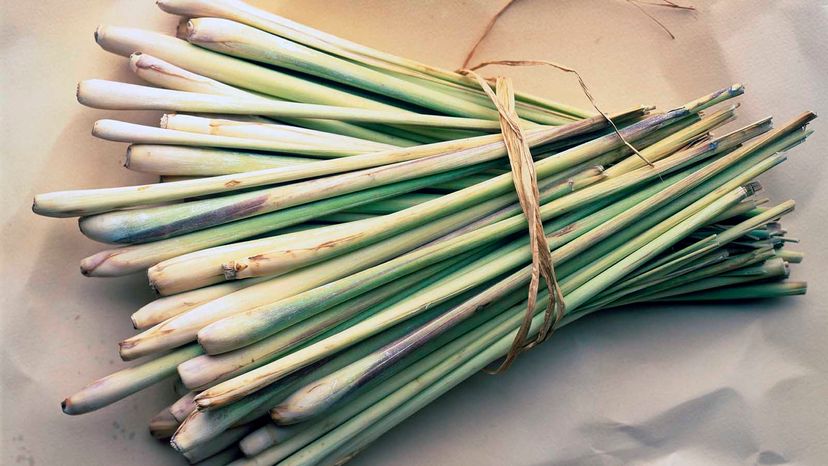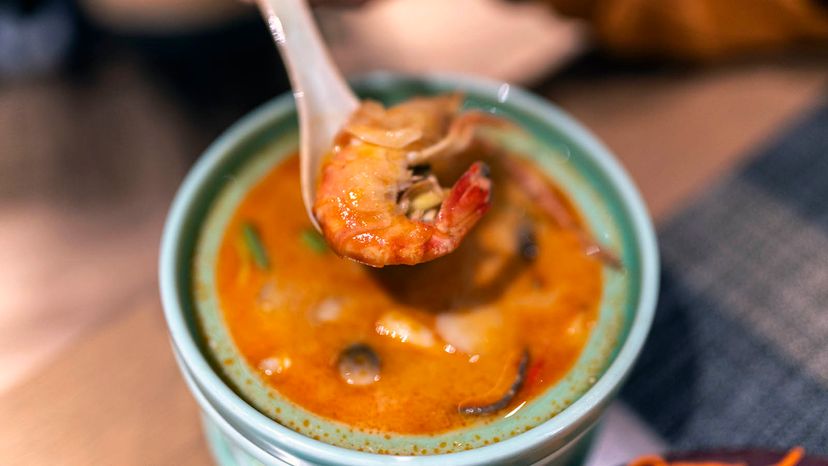 “Lemongrass is a staple ingredient in many Thai food dishes. It adds depth and brightness to dishes. Philippe Lissac/Godong/Getty Images
“Lemongrass is a staple ingredient in many Thai food dishes. It adds depth and brightness to dishes. Philippe Lissac/Godong/Getty Images
For DeeDee Niyomkul, owner of Chai Yo Modern Thai in Atlanta, lemongrass is an ingredient she knows all too well. She grew up in the restaurant industry, the daughter of Atlanta Thai food restaurateur powerhouse couple Charlie and Nan Niyomkul who have owned award-winning Nan Thai Fine Dining since 2003.
"Lemongrass is not too overpowering, which leaves an abundance of opportunity to layer in other exotic flavors for complexity," DeeDee says. "It has hints of citrus, lemon, slight mint, earthy and grassy flavors."
While you may not be as well versed in the flavor nuances of lemongrass as someone steeped in Thai food like DeeDee, it’s a grassy herb you can easily work with at home when your Asian foods recipes call for it.
What Is Lemongrass?
Lemongrass is an herb that grows mainly in tropical climates around Southeast Asia. It’s produced from the stalk of the lemongrass plant (Cymbopogon citratus). It has a citrusy — or lemony — scent.
It’s prominently used to flavor foods in Thailand, Indonesia, Sri Lanka and other countries in the region. People also seek lemongrass for its health benefits around sleep, inflammation, antioxidant properties and stress.
You can find the thin, pale green stalks at most grocery stores or Asian markets in the produce or freezer sections — they usually come in bunches. Look for stalks that have a light green color and are fragrant, and stay away from brown, unsightly stalks. It’s also relatively inexpensive.
Fresh, whole lemongrass adds brightness to stir-fries and soup broths, like tom kha and tom yum. DeeDee says she uses fresh lemongrass as part of the base for her Thai curry paste and other traditional Thai foods.
On the other hand, dried lemongrass, which is actually harder to find, imparts more of a woodsy flavor. It’s best used to make broths and seasoning powders for dishes like larb, a northern Thai-style salad with ground protein. "It adds depth and texture to the dish by offering a roasted aroma and a little crunch," DeeDee says.
 “Lemongrass is commonly sold in bunches. Look for bright green stalks and avoid those with too many brown blemishes. Flowerphotos/Universal Images Group via Getty Images
“Lemongrass is commonly sold in bunches. Look for bright green stalks and avoid those with too many brown blemishes. Flowerphotos/Universal Images Group via Getty Images
How to Prepare Fresh Lemongrass
When preparing lemongrass, you want to draw the oils out of the stalks. First, wash and remove the outside leaves. After you’ve cleaned them thoroughly, DeeDee says a mallet works best for the next steps.
"Pound [the lemongrass] at the bottom of the root and along the stalk," she says. "Most of the flavor and oils will be at the bottom. We put it in whole like this when making a soup broth. You can also get many flavors if you roast it in the oven."
If you buy freeze-dried lemongrass, you’ll prepare it the same way as fresh lemongrass. You’ll use the mallet to release the oils and then chop the bottom 3 to 4 inches (7.6 to 10.1 centimeters).
Cooking With Lemongrass
Lemongrass is fibrous, so it can be hard to chew if left in big pieces. So if you’re using it fresh in a salad or an entrée, slice it almost paper-thin to avoid any uncomfortable texture. You can also cut it for a stir-fry or add in whole stalks when making a broth.
Lemongrass is also a must when making curry paste with fresh ginger and other seasonings. But it has to be prepared just right. "It needs to be chopped finely and ground with a mortar and pestle with the other ingredients to make the paste," DeeDee says.
But perhaps the best way to taste lemongrass is in a hot bowl of tom yum kung, which is considered one of the most well-known dishes in Thai cuisine. "It’s the ultimate representation of lemongrass’ potential because it’s the distinguishing ingredient," DeeDee says. "Infinitely idiosyncratic in aroma and flavor, this spicy shrimp soup is the proud gatekeeper to any Thai restaurant menu." The soup is both spicy and sour and a little sweet as it combines the lemongrass with ginger, shiitake mushrooms, fish sauce and red chili in a hot soup bowl.
You can also find good uses for lemongrass in Southeast Asian recipes for Thai green curry, Vietnamese noodle salad, Thai massaman curry and more.
 “Lemongrass is showcased in tom yum kung, the most famous of all Thai soups.Sellwell/Getty ImagesNow That’s Cool
“Lemongrass is showcased in tom yum kung, the most famous of all Thai soups.Sellwell/Getty ImagesNow That’s Cool
You can use lemongrass oil, better known as citronella, as an insect repellent. Lemongrass’ strong citrus smell is proven to keep flies and even mosquitoes away.














































